Islamic Calendar 2025: A Comprehensive Guide
Islamic Calendar 2025: A Comprehensive Guide
Related Articles: Islamic Calendar 2025: A Comprehensive Guide
- Printable Calendar 2025: 4 Months Per Page For Optimal Planning
- Augusta County School Calendar 2025: A Comprehensive Guide For Students, Parents, And Educators
- Editable Calendar 2025: A Comprehensive Guide To Customization In Microsoft Word
- Daily Calendar: May 2025
- 2025 Month-Per-Page Calendar: A Comprehensive Guide
Introduction
With enthusiasm, let’s navigate through the intriguing topic related to Islamic Calendar 2025: A Comprehensive Guide. Let’s weave interesting information and offer fresh perspectives to the readers.
Table of Content
Video about Islamic Calendar 2025: A Comprehensive Guide
Islamic Calendar 2025: A Comprehensive Guide
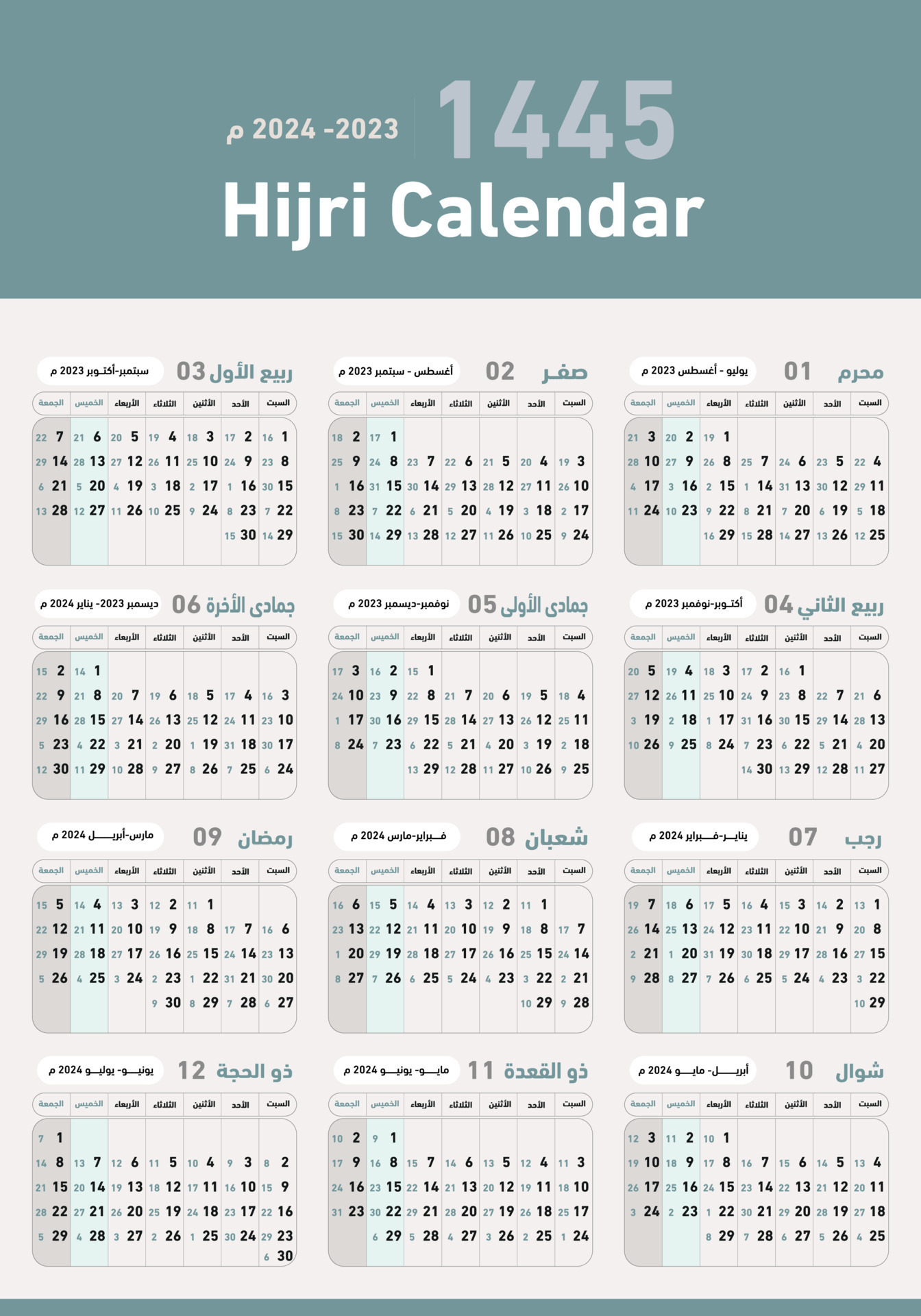
Introduction
The Islamic calendar, also known as the Hijri calendar, is a lunar calendar that is used by Muslims to determine religious holidays and events. The calendar is based on the moon’s phases, with each month beginning on the day of the new moon. The Islamic year is approximately 11 days shorter than the Gregorian year, which is the solar calendar used in most of the world.
History of the Islamic Calendar
The Islamic calendar was established during the reign of Caliph Umar ibn al-Khattab in 638 CE. The calendar was originally based on the pre-Islamic Arabian calendar, which was a lunar calendar with 12 months. Umar added a 13th month to the calendar, which was called Dhul-Hijjah. This month was added to ensure that the Hajj, the annual pilgrimage to Mecca, would always take place during the same season.
Structure of the Islamic Calendar
The Islamic calendar is divided into 12 months, each of which has 29 or 30 days. The months are named as follows:
- Muharram
- Safar
- Rabi’ al-Awwal
- Rabi’ al-Thani
- Jumada al-Awwal
- Jumada al-Thani
- Rajab
- Sha’ban
- Ramadan
- Shawwal
- Dhul-Qa’dah
- Dhul-Hijjah
The Islamic year begins on the first day of Muharram. The month of Ramadan is the ninth month of the year and is a time of fasting and prayer for Muslims. The Hajj, the annual pilgrimage to Mecca, takes place during the month of Dhul-Hijjah.
Important Dates in the Islamic Calendar
The Islamic calendar includes a number of important dates, including:
- Eid al-Fitr: This holiday marks the end of Ramadan and is celebrated with prayers, feasting, and gift-giving.
- Eid al-Adha: This holiday commemorates the sacrifice of Ibrahim and is celebrated with prayers, feasting, and the sacrifice of animals.
- Ashura: This day marks the martyrdom of Imam Hussein and is a day of mourning for Shia Muslims.
- Mawlid: This holiday celebrates the birth of the Prophet Muhammad and is celebrated with prayers, feasting, and gift-giving.
The Islamic Calendar and the Gregorian Calendar
The Islamic calendar is a lunar calendar, while the Gregorian calendar is a solar calendar. This means that the two calendars do not always align. The Islamic year is approximately 11 days shorter than the Gregorian year, so the Islamic calendar moves forward by 11 days each year relative to the Gregorian calendar.
Using the Islamic Calendar
The Islamic calendar is used by Muslims to determine religious holidays and events. It is also used in some Muslim countries to determine the dates of official holidays and events. The Islamic calendar can be used to convert dates between the Islamic and Gregorian calendars.
Conclusion
The Islamic calendar is a lunar calendar that is used by Muslims to determine religious holidays and events. The calendar is based on the moon’s phases, with each month beginning on the day of the new moon. The Islamic year is approximately 11 days shorter than the Gregorian year, so the Islamic calendar moves forward by 11 days each year relative to the Gregorian calendar.
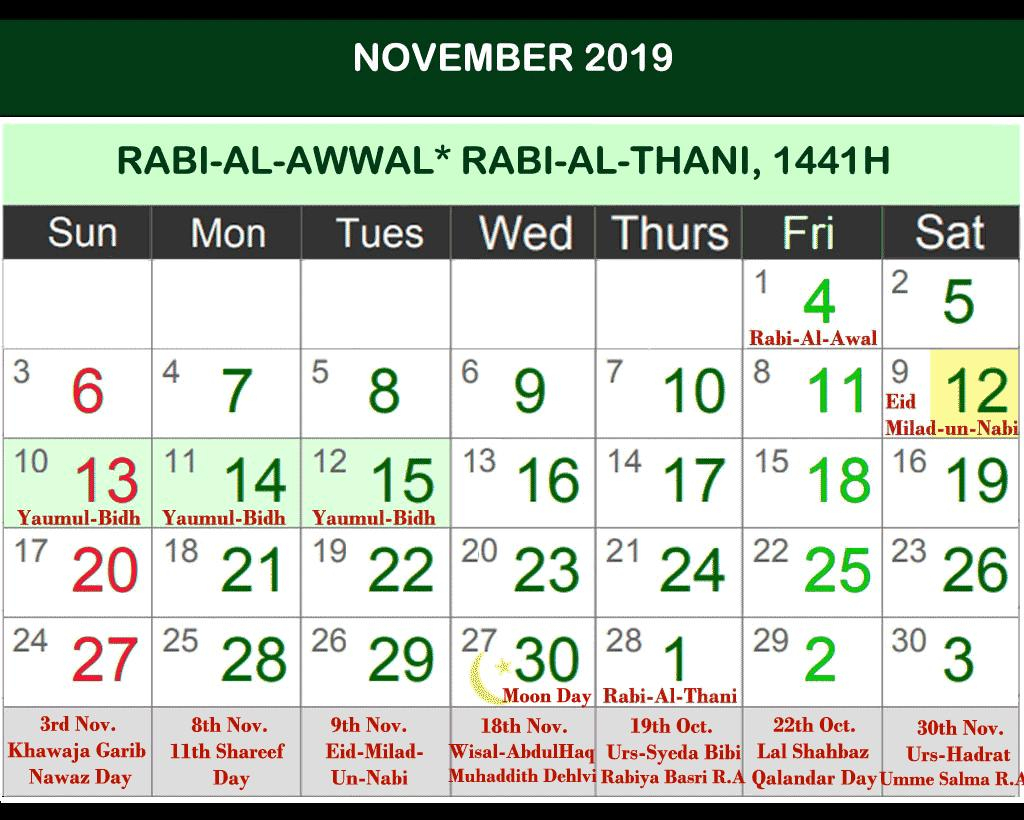

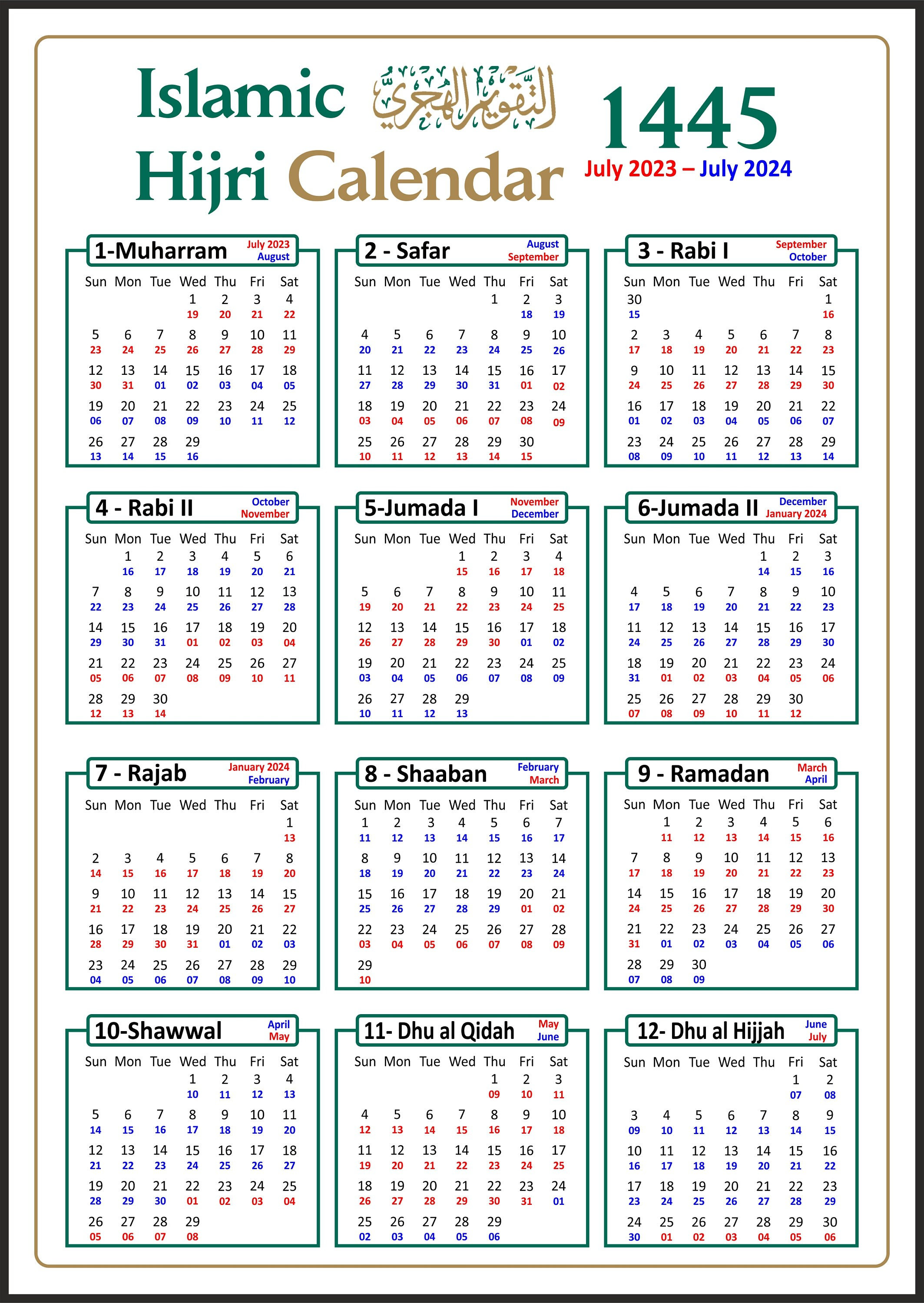
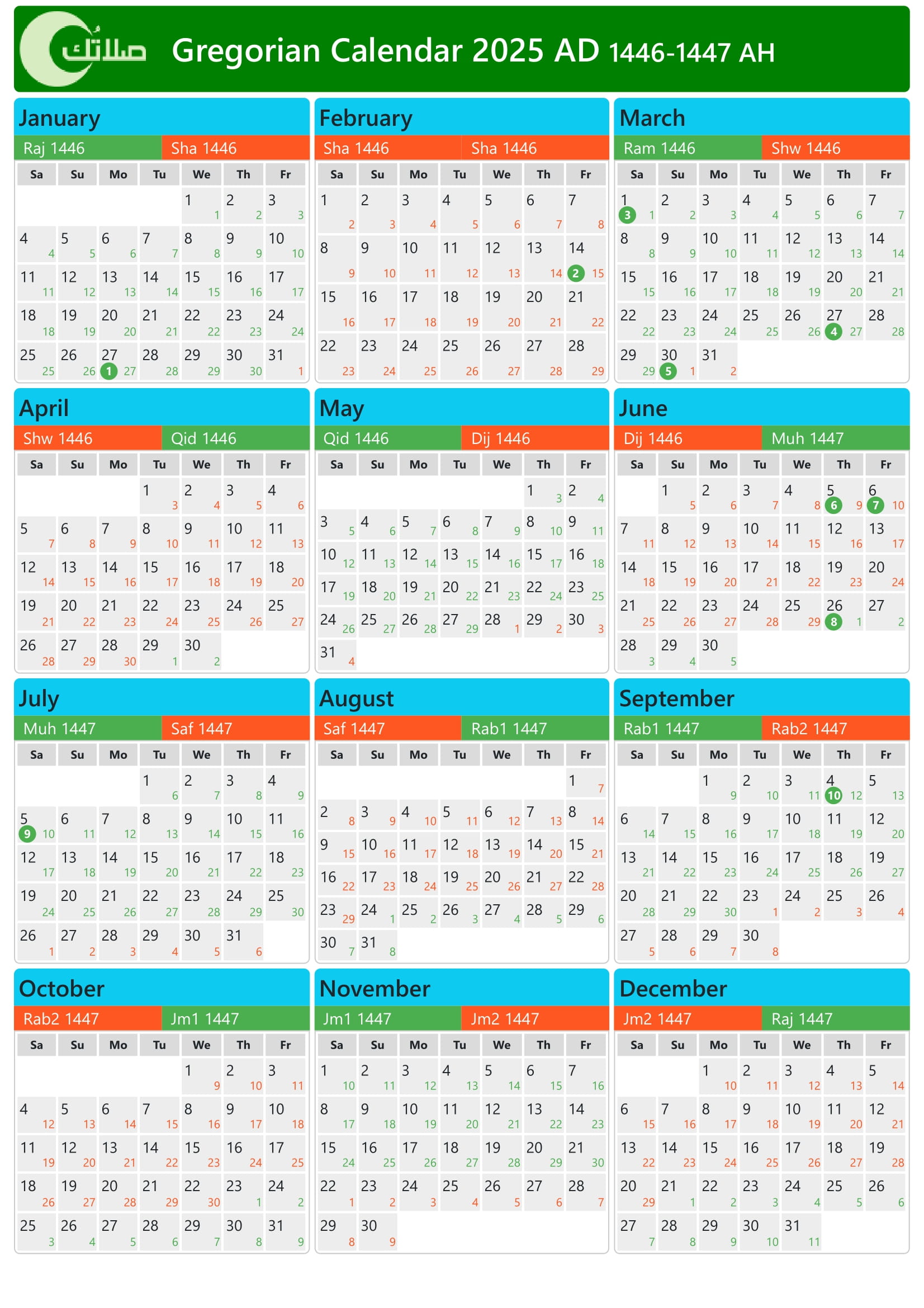

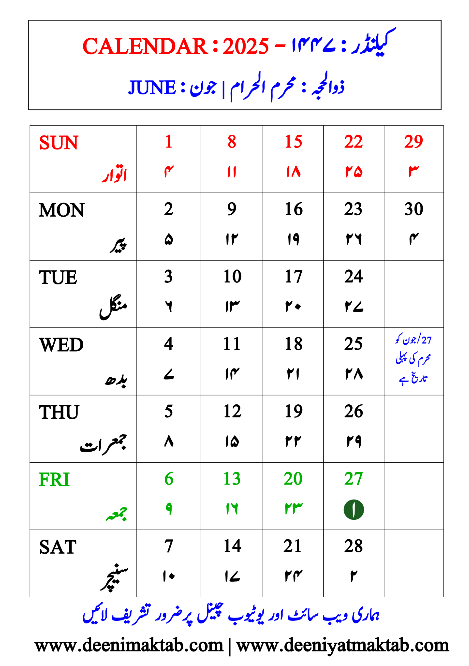
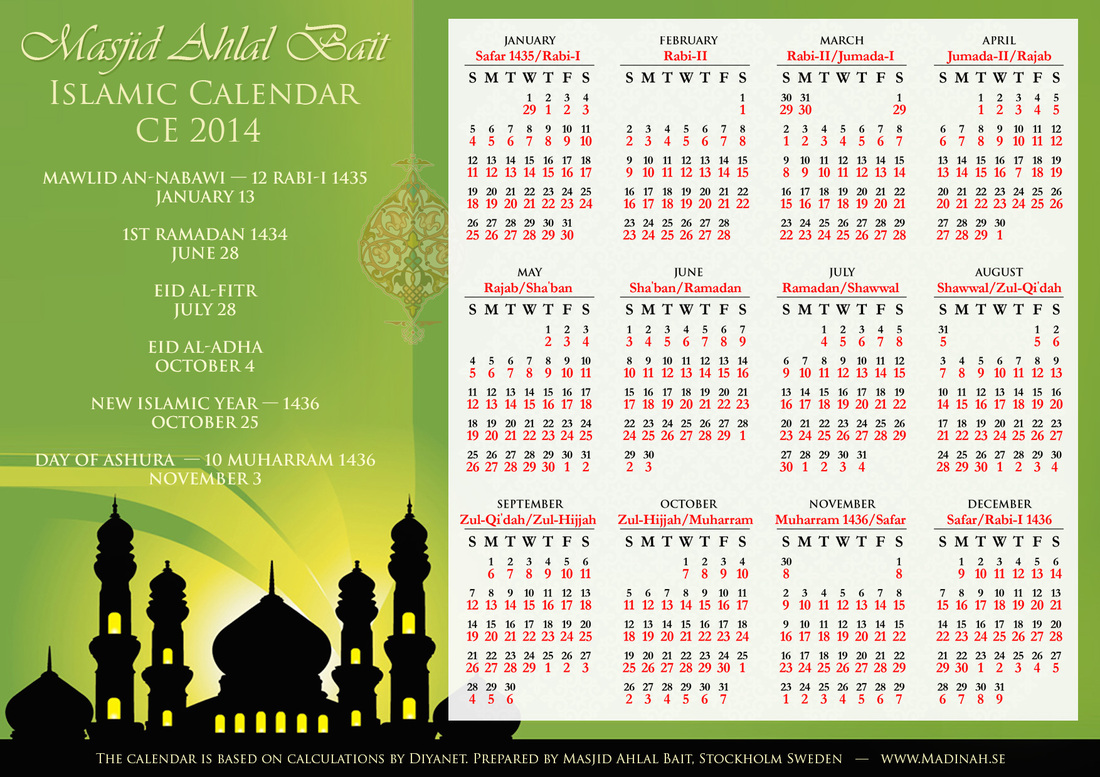

Closure
Thus, we hope this article has provided valuable insights into Islamic Calendar 2025: A Comprehensive Guide. We hope you find this article informative and beneficial. See you in our next article!